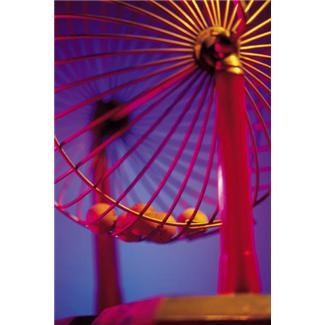The Ideological Lottery
The other Vietnam Syndrome: How the Vietcong affects your vote.

An article by Robert Erikson and Laura Stoker in the most recent American Political Science Review demonstrates how strong a factor even just the fear or anticipation of being drafted was in shaping political views of the Vietnam generation. The variable they studied was the number that was assigned to each birth date (i.e., to the draft-eligible men with that birth date) by the lottery that the Nixon administration implemented to make the system of conscription more fair. Those with lower lottery numbers were more likely to be drafted than those with higher numbers. The authors compared the lottery numbers with the subsequent views of men who graduated from high school in 1965 and from college in 1969 and were the first cohort to be subject to the lottery. The analysis shows that the lottery number had a significant effect on political opinions independent of whether or not the men actually served in the military. The effect was especially pronounced with regard to views about the Vietnam War itself; those with low lottery numbers were substantially more likely to believe the war was a mistake than those with higher numbers. For at least the first few years after the lottery, the effects bled over into other related beliefs and affinities. Those with the low numbers were more likely than those with high numbers to identify as Democrats, to vote for George McGovern in the 1972 election, and so forth.
With the passage of more time (the researchers used data about the same cohort's opinions through 1997), these effects faded, but not entirely. The discrepancy in views about the Vietnam War itself persisted, even a quarter century after the war ended. Also persistent were any changes in party affiliation that the low-number people experienced at the time of the Vietnam War. The prospect of being drafted evidently induced the low-number men to do more hard thinking of their own about issues of public policy; a larger proportion of these men changed their party affiliation from what they said it had been in 1965 (often a legacy of their families' affiliations) than did the men with high draft numbers. Of those who did change affiliations, most never changed back.
These findings are a reminder of some of the ways in which Americans' views on politics and policy are heavily shaped by factors other than sober consideration of the policies themselves. They are partly shaped by interests that do not coincide with the larger U.S. national interest. The non-coincident interests could be a highly personal one such as not wanting to get drafted, or it could be something different such as a affinity to a foreign country.
There also is the sheer emotional factor. Fear of getting drafted and being forced to go fight in a high-casualty war carried a lot of emotion for the segment of the population that was put in that position. But fear, anger, and emotion can sweep up much larger segments of the population in politically significant ways, as it did with Americans following the 9/11 terrorist attacks.
Then there is the pattern of strong feelings about a particular issue (in this case the Vietnam War) coloring views about constellations of other issues, not necessarily as a matter of logic but instead of affinity to something like a political party. This pattern is a very large part of the formation of public opinion in America today, and a major source of mistaken beliefs.
Finally, there is luck. Some people today are, say, Democrats rather than Republicans—with everything such party affiliation implies regarding the candidates and policies they are more likely to support—because a capsule with a piece of paper on which their birthdate was written tumbled a certain way in a drum in 1969.
